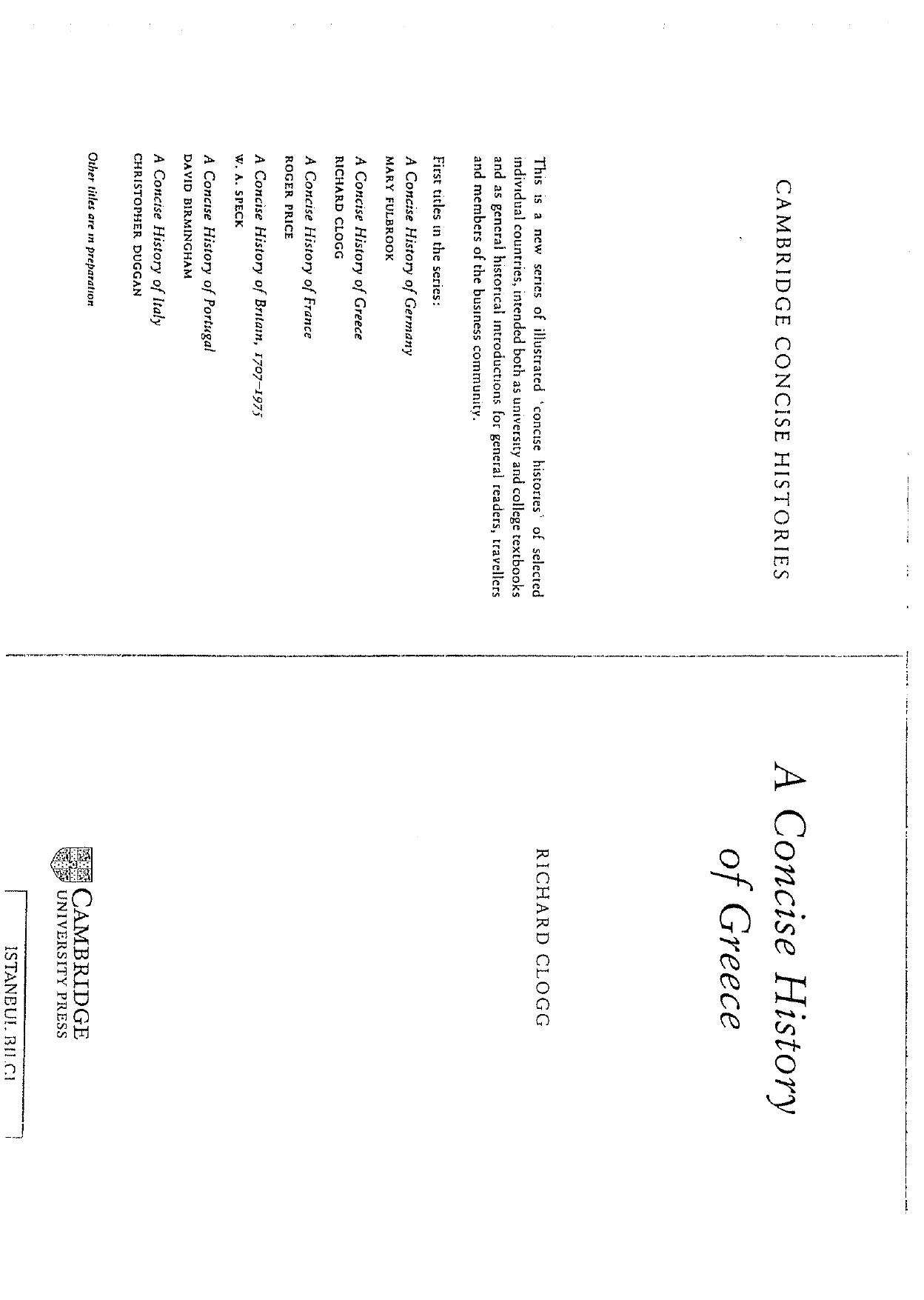A Concise History of Greece (Cambridge Concise Histories) by Richard Clogg

Author:Richard Clogg [Clogg, Richard]
Language: eng
Format: epub, pdf
Publisher: Cambridge University Press
Published: 2013-12-11T23:00:00+00:00
Map 9 The Aegean dispute Source: Andrew Wilson, The Aegean dispute (1979)
The potential for the simmering crisis in Greek–Turkish relations to flare up at any time was demonstrated in the summer of 1976 when the Turkish government sent a survey ship, the Sismik Ⅰ, to carry out soundings in disputed waters. Andreas Papandreou, the leader of PASOK, called for the sinking of the Sismik, an action that would undoubtedly have precipitated war. Karamanlis, for his part, preferred recourse to the UN Security Council and the International Court of Justice at The Hague. But neither body was able to contribute constructively to a resolution of the conflict.
What gave a particular edge to the Aegean dispute was the hope of finding oil beneath the sea bed, for both countries had few indigenous sources of energy and both had been particularly badly hit by the energy crisis of the early 1970s. Commercial quantities of oil had been found off the island of Thasos, but, at its peak, oil production from this field has never exceeded 5 per cent of Greece’s total consumption. It remains to be seen whether the Aegean sea bed will yield the hoped-for oil reserves. Greek perceptions of the Turkish threat have had serious economic consequences, for enhanced spending on the armed forces has consumed as much as one-fifth of budget expenditures, even if it has had the incidental advantage of giving the officer corps a genuine sense of mission and of diverting it from political activity. Massive expenditures on military hardware meant that the infrastructural reforms, e.g. in education and health care, that demanded urgent attention received a low priority. The economic inheritance of the junta was unpromising. The momentum of the pre-coup period had been maintained during the early years of the dictatorship but it had been sustained only by profligate borrowing and excessive generosity to foreign investors. By the last years of the junta inflation, the scourge of the 1940s which had been largely contained through the prudent monetary policies of the 1950s and 1960s, once again became a major problem. For a government ostensibly wedded to the free enterprise system, New Democracy displayed a curious penchant for taking banks and other enterprises into state ownership, adding to the very large numbers of those employed, directly or indirectly, by the state.
But relatively few of Karamanlis’ energies could be diverted to coping with matters of domestic policy, a fact that was to have serious consequences for the future fortunes of the right. Throughout his six-year premiership his sights were to be firmly concentrated on matters of foreign policy. His overriding priority was the accelerated accession of Greece to the European Community. The 1961 treaty of association had provided for the possibility of accession in 1984. But Karamanlis was determined to speed up this process, seeing in membership of the Community compensation for the deterioration in relations with Greece’s traditional patron, the United States, safeguards for her newly re-established democratic institutions, and protection against the Turkish threat. It was
Download
A Concise History of Greece (Cambridge Concise Histories) by Richard Clogg.pdf
This site does not store any files on its server. We only index and link to content provided by other sites. Please contact the content providers to delete copyright contents if any and email us, we'll remove relevant links or contents immediately.
| Africa | Americas |
| Arctic & Antarctica | Asia |
| Australia & Oceania | Europe |
| Middle East | Russia |
| United States | World |
| Ancient Civilizations | Military |
| Historical Study & Educational Resources |
The Battle of Mogadishu by Matt Eversmann & Dan Schilling(610)
The Confidence Men by Margalit Fox(534)
The Spymaster of Baghdad by Margaret Coker(531)
A History of the Muslim World since 1260: The Making of a Global Community by Vernon O. Egger(515)
Jack the Ripper and the East End by Peter Ackroyd(470)
Empire of Fear: Inside the Islamic State by Andrew Hosken(464)
Islam At The Gates: How Christendom Defeated the Ottoman Turks by Diane Moczar(459)
The Crimean War by Winfried Baumgart(458)
The Afghanistan File by Prince Turki AlFaisal Al Saud(454)
The Jerusalem Diamond by Noah Gordon(453)
Akhenaten by Dominic Montserrat(440)
A Concise History of Greece (Cambridge Concise Histories) by Richard Clogg(439)
Israel: Ancient Kingdom or Late Invention? by Daniel I. Block(437)
The History of Jihad by Robert Spencer(430)
Enemy in the East by Rolf-Dieter Müller(427)
The Privatization of Israeli Security by Shir Hever(423)
Destroying a Nation: The Civil War in Syria by Nikolaos van Dam(422)
The Nine Lives of Pakistan by Declan WALSH(413)
The Dirty War in Kashmir by Shujaat Bukhari(403)
